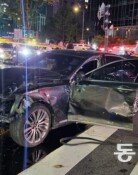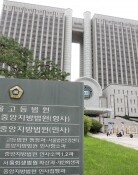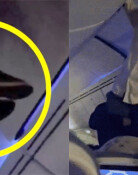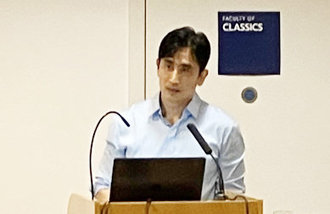The Intellectual

I once laid down on a grassy plot under a tree in the campus. As I looked up at the tree over me, I found out that somebody wrote desperation on one of the branches of the tree. I immediately stood up out of surprise
.I read Søren Aabye Kierkegaards The Sickness Unto Death (Sygdommen til Døden) again and again comparing it with the translated version of it.
In this book, the author, Ji Myung-gwan, a 82 year old professor at Hallym university and a devoted Christian and intellectual who has always took the lead, honestly expresses the portrait of an intellectual who experienced the colonial period, separation of Korea, and the battle against militaristic dictatorship. He says, I always had to make a choice; should I jump into the real world or just turn a blind eye to it and escape by focusing on academic research?
Ji was born in 1924 in a city located at the North of Pyongan Province. The independence of Korea was just desperation for him. Amid the confrontation between the left and the right ideology among the Koreans, Ji had to part from his teacher. As a student, he had to ask himself repetitively whether he is normal as he saw his college classmates became fanatics in the midst of a tragic battle.
Ji was a normal student interested in literature. However, his life changed since the Revolution of March 19 by participating in it as an intellectual. After ending his job as a professor, he became the chief of the magazine, Sasang gye, published by Jang Jun-ha. Back then, Sasang gye served as a mecca for the people who were opposed to the Korea and Japan Agreement. However, even though Jang Jun-ha was known as a ardent fighter against the agreement between Korea and Japan, he was also a calm realist capable of responding promptly to the changing world. Jang sent Ji and Kim Jun-yeop, the former president of Korea University, to Japan in order to get ready for the post-Korea and Japan Agreement era.
Jis life changed after traveling Japan for 10 days at that time. He underwent a big ideological change after studying in the U.S. and traveling Europe and the Middle East. In 1972, Ji left Korea to study in Japan and to escape from the militaristic dictatorship. After that he lived there as a political exile for two decades.
Intellectuals are not defined by the ideology they believe. Intellectuals should be judged by the humanity he supports in the society. Intellectuals should think about what the people should be free of and what to fight against.
(excerpt from Sasang gye published in September, 1966).
In March 1973, Ji started to write a column dubbed letters from Korea after Yasye Ryoskei, the then editor of Sekai. He wrote the column under the pen name of T.K Student, which led many people to make guesses. The column was published for 15 years and ended at March in 1988. The letters from Korea proved to be an effective tool to inform the world of the democratization movement in Korea and struggles against the dictatorship. Also, it succeeded in composing a Christian network which enabled international support and alliance for the democratization for Korea.
Looking back to those turbulent days, Professor Ji says he closely scrutinized the totalitarianism critical philosophy of the political philosopher Hannah Arendt, who once said, All revolutions are failed revolutions.
Korean politicians dont try to set right and transparent politics as their goals once they are in power, but instead call for a renewal. Once a person gets power, he gets to hate lukewarm revolutions and becomes a revolutionist dreaming for a totally new world. In a near future, the new power group will be judged by the slogans they made before.
Ji says, What is important is the democracy which comes after overcoming the uncompromising confrontation between the paternalistic authoritarianism and resistant revolutionary group against it. This is the work left to overcome the era which separates its citizens into friend or foe.
Seung-Hoon Cheon raphy@donga.com







